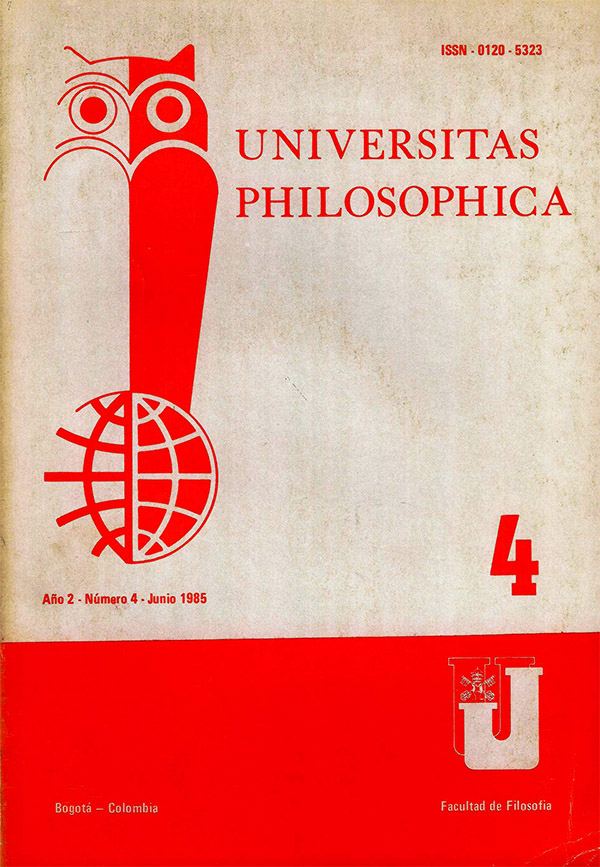Abstract
Whithehead, el filósofo más estudiado en el mundo anglosajón en los últimos decenios, es prácticamente desconocido en el mundo de habla hispana. Su terminología, método, categorías, doctrina del proceso... presentan, a primera vista, tales dificultades que disuaden a más de uno de adentrarse en su obra. Faltan, a su vez, trabajos introductorios que allanen el camino. Mi propósito, al tiempo que interpretar su doctrina, es facilitar el acceso a otros estudiosos.
Esto es, por tanto, un trabajo interpretativo.
En Whitehead las entidades actuales (seres) son el principio último, el sustento metafísico de todo su sistema.
Pero las entidades actuales son todas del mismo nivel ontológico, de modo que ninguna es superior, ninguna funda o crea a las otras. Cada una es el acto (proceso) por el que se constituye a sí misma. Y este acto es la "prehensión" (aunamiento) de todas las entidades del pasado para una nueva conjunción autocreativa. Esto significa organismo, síntesis armónica de todo el universo, empeñado en una nueva creación.
This journal is registered under a Creative Commons Attribution 4.0 International Public License. Thus, this work may be reproduced, distributed, and publicly shared in digital format, as long as the names of the authors and Pontificia Universidad Javeriana are acknowledged. Others are allowed to quote, adapt, transform, auto-archive, republish, and create based on this material, for any purpose (even commercial ones), provided the authorship is duly acknowledged, a link to the original work is provided, and it is specified if changes have been made. Pontificia Universidad Javeriana does not hold the rights of published works and the authors are solely responsible for the contents of their works; they keep the moral, intellectual, privacy, and publicity rights.
Approving the intervention of the work (review, copy-editing, translation, layout) and the following outreach, are granted through an use license and not through an assignment of rights. This means the journal and Pontificia Universidad Javeriana cannot be held responsible for any ethical malpractice by the authors. As a consequence of the protection granted by the use license, the journal is not required to publish recantations or modify information already published, unless the errata stems from the editorial management process. Publishing contents in this journal does not generate royalties for contributors.


